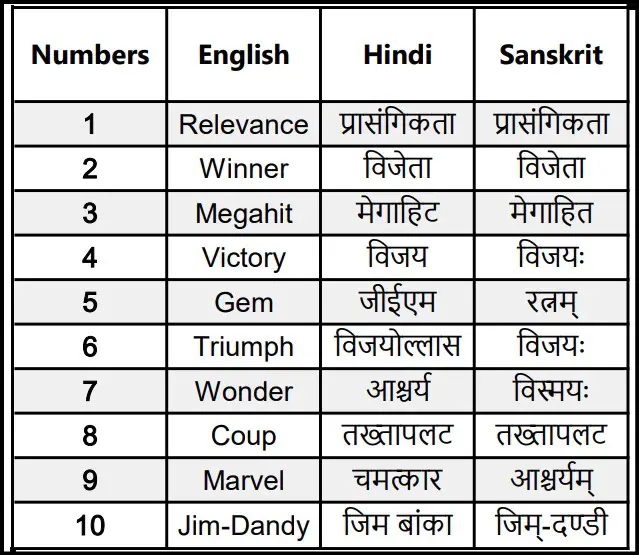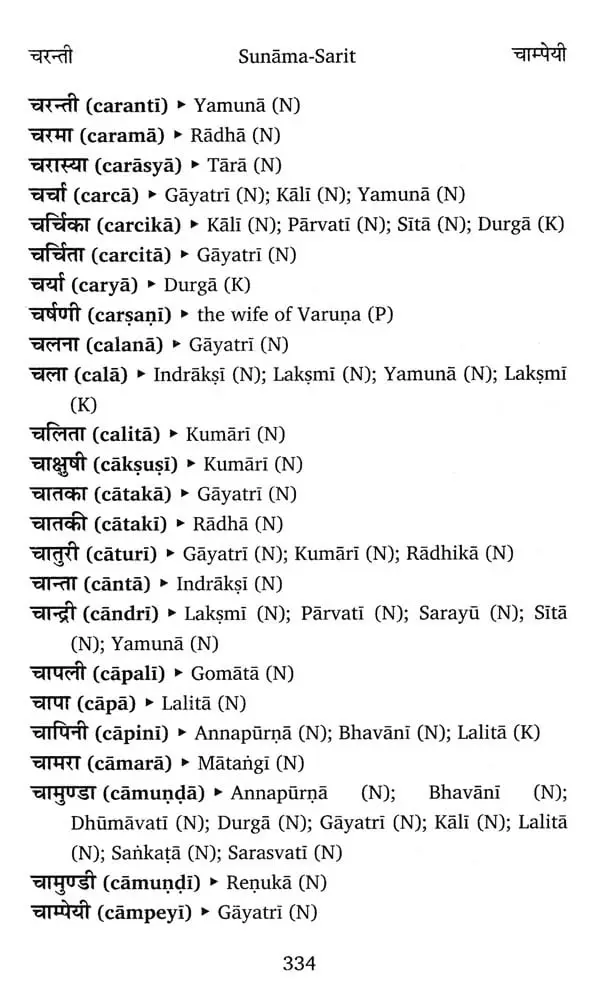best sanskrit names
Sanskrit, one of the oldest languages in the world, has a profound connection with spirituality, culture, and philosophy. The best Sanskrit names carry deep meanings and resonate with emotions, making them timeless choices for various aspects of life. Whether you’re looking for a name for your newborn, a business, or even a home, Sanskrit names possess an allure that is hard to resist. In this exploration, we will delve into some of the most beautiful and meaningful Sanskrit names, providing insights for different categories including baby names, company names, and more.
Introduction: The Enduring Allure of Sanskrit Names

The richness of Sanskrit lies not only in its sound but also in its ability to convey deep meanings through simple syllables. Many parents today are drawn to this ancient language, seeking names that reflect values, virtues, or aspirations. As cultures blend and evolve, the appeal of Sanskrit names transcends geographical boundaries.
In addition to their melodic quality, best Sanskrit names often have historical significance, linking individuals to a heritage that is both noble and profound. By choosing a Sanskrit name, one can embrace a tradition that is steeped in wisdom.
The Cultural Significance of Sanskrit Names
Sanskrit names carry immense cultural significance in Hinduism and Buddhism. They often encapsulate stories, deities, or philosophical concepts that have shaped civilizations. Names like “Arjuna,” associated with courage and heroism from the Mahabharata, or “Kali,” embodying strength and transformation, serve as reminders of these narratives.
Choosing a Sanskrit name can act as a bridge connecting generations, instilling a sense of identity that honors ancestral roots. This cultural reverence imbues a name with a deeper sense of purpose beyond mere identification.
The Aesthetic Appeal of Sanskrit Sounds
The phonetics of Sanskrit is particularly harmonious, which makes it pleasant to hear and pronounce. With its combination of vowels and consonants, the sounds produced are both soothing and uplifting. Words often flow seamlessly, creating an auditory experience that is pleasing to the ears.
This aesthetic quality means that many people choose Sanskrit names not just for their meanings but also for their lyrical beauty. Names like “Aarav” or “Lakshmi” can resonate well across diverse cultures, appealing to a wide array of audiences.
Evolving Trends in Naming Practices
As globalization continues to influence naming practices, there is a noticeable shift towards unique and meaningful names. Parents are increasingly moving away from conventional names in favor of something distinctive yet rooted in heritage. In this landscape, best Sanskrit names have found their place as modern yet timeless options.
The trend of using Sanskrit names for pets, brands, and even homes reflects an appreciation for the language’s depth. It signifies a desire to create connections that go beyond superficial labels, aiming instead for names that tell a story or embody a belief.
Best Sanskrit Names for Baby Boys: A Guide to Meaningful Choices

When selecting a name for a baby boy, it is essential to consider the meaning and sound of the name. The best Sanskrit names for baby boys are often derived from mythology, nature, or virtues. These names not only provide identity but also bestow characteristics that parents may wish to inspire in their children.
Exploring Mythological Names
Mythology plays a significant role in Sanskrit nomenclature. Names such as “Krishna,” representing love and compassion, or “Rama,” symbolizing righteousness, are deeply rooted in Indian epics.
These names carry an intricate history and the attributes associated with them can serve as guiding principles in a child’s life. By choosing a mythological name, parents can instill a rich cultural narrative that encourages moral values and personal growth.
Names Inspired by Nature and Elements
Nature has always been a source of inspiration for names. Sanskrit offers a variety of names that draw upon natural elements. For instance, “Vayu” signifies the wind, while “Agni” refers to fire.
Such names often evoke images of strength and resilience, traits that parents may aspire for their sons. Utilizing nature-inspired names connects the child to the earth and cultivates an appreciation for the world around them.
Virtuous Names with Positive Attributes
Names that embody virtues are another great choice for baby boys. Names like “Dharma,” connoting righteousness or “Tejas,” symbolizing brilliance and radiance, reflect qualities that parents might want their children to embody.
By choosing virtuous names, parents can encourage positive behavior and inspire their boys to uphold values that contribute positively to society.
Modern Interpretations of Traditional Names
While traditional Sanskrit names hold an appeal, modern interpretations of these names are also gaining popularity. Variations of names can offer a contemporary twist while retaining their original essence.
For example, “Aarav,” which means peaceful, is a modern take on the classical name “Raam.” Such names provide a balance between heritage and current trends, making them perfect for today’s families.
Best Sanskrit Names for Baby Girls: Evoking Grace and Strength

Selecting a name for a baby girl is often met with equal parts joy and responsibility. The best Sanskrit names for baby girls resonate with elegance while embodying strength and character.
Names Reflecting Feminine Power
Many Sanskrit names celebrate feminine power and grace. Names like “Durga,” embodying strength and protection, or “Sita,” representing fidelity and virtue, are popular choices that connect a girl to powerful figures within mythology.
These names not only honor strong female characters but also provide a foundation for young girls to embody these empowering qualities in their lives.
Names Inspired by Flora and Fauna
Nature influences many beautiful Sanskrit names for girls. “Lalita,” which means playful, or “Pallavi,” meaning budding leaves, highlight the connection between femininity and nature.
These names evoke images of beauty, grace, and vitality, reminding girls of their inherent link to the earth and the importance of nurturing their surroundings.
Spiritual and Philosophical Names
Sanskrit has a plethora of spiritual names that encourage introspection and wisdom. Names such as “Ananda,” meaning bliss, or “Maya,” signifying illusion or creativity, are reflective of deeper philosophical concepts.
Choosing a name with spiritual undertones can foster a sense of mindfulness in a girl’s life, encouraging her to explore her identity and beliefs as she grows.
Combinations and Variations
The practice of combining names or using variations can also yield beautiful results. Names like “Shanaya,” which translates to “eminent” or “distinguished,” serve as excellent examples of how to modernize traditional names while maintaining their integrity.
Parents can creatively mix and match to find a name that feels uniquely personal yet rooted in deep meaning. This approach allows for personalization while embracing the traditional essence of Sanskrit.
Sanskrit Names with Deep Meanings: Unveiling the Significance

Every name carries a story, especially when it comes to Sanskrit nomenclature. The best Sanskrit names with meaning offer layers of significance that can enrich one’s identity.
Understanding the Essence Behind Names
Delving into the meanings of names unveils a treasure trove of insights. For example, “Arjun,” which means bright or shining, not only represents physical brightness but also symbolizes clarity of thought and action.
Understanding the essence behind names can instill a sense of pride and belonging, making individuals feel more connected to their roots and cultural narratives.
The Role of Sound and Meaning
The interplay between sound and meaning amplifies the significance of Sanskrit names. This duality ensures that names are not only pleasant to hear but also impactful in their implications.
For instance, “Siddharth,” meaning one who has attained his goals, resonates with aspiration and ambition. The sound of the name itself evokes a sense of purpose, making individuals strive toward their dreams.
From Historical Context to Personal Significance
Many Sanskrit names have historical contexts tied to revered texts and figures. Names like “Brahma,” which refers to the creator, or “Vishnu,” the protector, connect individuals to rich lore.
However, the interpretation doesn’t stop at historical context; personal significance varies widely. Each person may relate to their name differently based on personal experiences, fostering individuality alongside shared heritage.
Timelessness of Sanskrit Names
The enduring nature of Sanskrit names is a testament to their depth and versatility. Unlike contemporary names that may fade with trends, many Sanskrit names maintain their relevance over centuries.
By choosing a name that carries deep meaning, parents can give their children a lasting gift—an identity that remains significant throughout their lives.
Sanskrit Names for Business Ventures: Inspiring Prosperity and Success

In the realm of entrepreneurship, a name can set the tone for a business’s identity. The best Sanskrit names for companies reflect values, vision, and aspirations, inspiring success.
Names that Evoke Prosperity
Prosperity is a common theme in business names, and Sanskrit offers numerous options. Names like “Lakshmi,” after the goddess of wealth and prosperity, can attract positive energies conducive to business growth.
Such names resonate with clients and consumers, conveying a sense of abundance that might align with their aspirations. An auspicious name can become an integral part of the brand’s identity.
Creative and Unique Brand Naming
In a competitive market, standing out is crucial. Employing Sanskrit names allows businesses to project uniqueness while retaining cultural depth.
For instance, “Sankalp,” meaning determination, could serve as a compelling name for a consultancy, juxtaposing modern professionalism with traditional values. These combinations can create a memorable identity that resonates with diverse audiences.
Names Symbolizing Strength and Stability
Business owners often seek names that symbolize strength and stability. Sanskrit names like “Prabhu,” which means lord or master, communicate authority and expertise.
Such names can instill confidence in clients and stakeholders, assuring them of the reliability and competence of the business. A strong name can help build a lasting reputation.
The Role of Meaningful Names in Marketing
Marketing strategies benefit immensely from meaningful names. When a name embodies values that resonate with customers, building brand loyalty becomes easier.
Businesses can leverage the stories behind their names to connect emotionally with their audiences, creating campaigns that highlight their commitment to those principles.
Sanskrit Names for Homes: Creating a Sanctuary of Peace and Harmony

Finding the right name for a home involves consideration of comfort, warmth, and emotional resonance. The best Sanskrit names for houses can evoke feelings of peace, safety, and harmony.
Creating a Sense of Belonging
A home is more than just a structure; it’s a sanctuary where memories are made. Sanskrit names can encapsulate this essence. Names like “Nivasa,” meaning abode, or “Shanti,” meaning peace, resonate deeply with the idea of home.
These names can create an inviting atmosphere and establish a sense of belonging for everyone who enters. Choosing a meaningful name can transform a house into a cherished home.
Names Inspired by Natural Elements
Names inspired by nature can foster tranquility and serenity within a home. “Tarang,” meaning wave, or “Aranya,” meaning forest, brings forth imagery of nature’s calming influence.
By integrating natural elements into home naming, residents can cultivate an environment that promotes relaxation and connection with the outdoors, enriching their daily life.
Evoking Cultural Heritage
Sanskrit names provide an opportunity to honor cultural heritage while creating a welcoming space. Names like “Griha,” meaning home or residence, reinforce traditional values connected to family and community.
Cultural heritage enhances the ambiance of a home, instilling a sense of pride and continuity for generations to come. It creates a bridge connecting past traditions with present experiences.
Personalizing Home Names
Personalization plays a vital role in naming a home. Families can opt for names that reflect their journey, values, or aspirations.
For example, “Sukh Sagar,” meaning ocean of happiness, symbolizes a joyful family life while also serving as a reminder of positivity. This imaginative approach fosters an emotional connection to the living space.
Sanskrit Names for Groups and Teams: Fostering Unity and Collaboration
Naming groups or teams is a task that combines creativity, purpose, and unity. The best Sanskrit names for groups can inspire collaboration and solidarity among members.
Names Signifying Unity and Strength
In any collaborative effort, unity is key. Names such as “Sankalp,” meaning resolution or determination, can embody the group’s shared vision and commitment to a common goal.
Choosing a name that reflects these principles fosters a sense of togetherness and encourages team members to work collaboratively toward achievement.
Names Encouraging Creativity and Innovation
Creativity thrives in environments that promote open-mindedness and innovation. Names like “Chaitanya,” meaning consciousness or awareness, can inspire fresh ideas and new perspectives within a team.
These names resonate with the essence of collaboration, making team members feel empowered to express themselves and contribute creatively.
Motivational Names for Sports Teams
In the realm of sports, motivation is paramount. Names that evoke strength and competitiveness can inspire athletes to perform their best.
Names like “Vijay,” meaning victory, or “Veer,” meaning brave, can encapsulate the spirit of competition and drive that athletes thrive on. These names serve as rallying cries, encouraging perseverance and teamwork.
The Importance of Shared Identity
Having a shared name fosters a collective identity among group members. It creates a sense of belonging and emphasizes the importance of working together toward common objectives.
Through meaningful naming, members can bond over their shared purpose, reinforcing the importance of collaboration and mutual support.
Sanskrit Names for Medical Institutions: Embodying Healing and Compassion

In the medical field, a name can signify trust, care, and professionalism. The best Sanskrit names for clinics and hospitals embody these ideals, reflecting the mission to heal and support patients.
Names Connoting Healing and Care
Choosing a name that embodies healing can significantly affect patient perceptions. Names like “Arogya,” meaning health or wellness, resonate with the core mission of medical institutions.
These names emphasize the commitment to patient care and well-being, reassuring individuals that they are in capable hands. A meaningful name can foster a sense of trust and comfort.
Names Reflecting Knowledge and Expertise
Medical institutions are often associated with knowledge and expertise. Names like “Vidya,” meaning knowledge or wisdom, symbolize the institution’s dedication to education and advanced medical practices.
Such names elevate the institution’s credibility and professionalism, attracting patients who value expertise and compassionate care.
Building Community Connections
Names that emphasize community can strengthen connections between medical institutions and their surrounding neighborhoods. Names like “Sewa,” meaning service, underscore the commitment to serving and supporting the community’s health needs.
These names inspire collaboration with local organizations and initiatives, enhancing the institution’s role as a pillar of health and wellness within the community.
Inspiring Hope and Positivity
The essence of healing often extends beyond physical aspects, encompassing emotional and psychological well-being. Names that evoke hope and positivity can uplift patients during challenging times.
Names like “Sankalp,” meaning resolution or determination, encourage resilience and perseverance in recovery. These names remind patients that they are supported in their journey toward healing.
Choosing the Right Sanskrit Name: Factors to Consider
Selecting a name, whether for a child, business, or home, involves careful consideration. There are several factors to weigh when deciding on the best Sanskrit name for your specific purpose.
Cultural Relevance and Tradition
Understanding cultural relevance is fundamental in choosing a Sanskrit name. Names should ideally resonate with the values and traditions you wish to uphold.
Taking time to learn about the cultural significance of names helps ensure that they align with family history and aspirations. This understanding can enhance the meaningfulness of the chosen name.
Phonetic Appeal and Clarity
Phonetics can play a crucial role in the acceptance and usage of names. A name that is easy to pronounce and remember will be more likely to be embraced by others.
Considering how a name sounds, along with its rhythm and flow, can make a significant difference. Opting for names that roll off the tongue can facilitate smoother interactions in social and professional settings.
Personal Resonance and Meaning
Ultimately, the name you choose should hold a personal significance. Reflecting on what qualities, values, or aspirations you wish to embody through the name can guide your decision.
Take the time to ponder the meanings of various names, ensuring that the chosen one resonates with your personal beliefs and vision.
Future Considerations
Thinking of the future impact of a name is also important. A name should be appropriate for various stages of life, from childhood to adulthood and beyond.
This foresight can prevent future discomfort or misalignment with personal identity, allowing the individual to grow into their name authentically.
Conclusion: Embracing the Wisdom of Sanskrit Nomenclature

The enduring legacy of Sanskrit names lies in their profound meanings and cultural richness. From baby names to business ventures, the best Sanskrit names serve as vessels for values, aspirations, and identities.
With each name chosen, there exists an opportunity to connect with a deeper narrative, celebrating heritage while paving the way for future generations. By embracing the wisdom encapsulated in Sanskrit nomenclature, individuals can create meaningful connections to their past, present, and future.
As the world continues to evolve, the timeless beauty of Sanskrit names will undoubtedly remain a source of inspiration, reflecting the human experience in all its complexity and depth.




